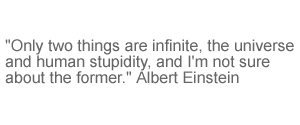







Smart Dust Advances in Russia
Gateway2Russia 18.12.04
By Bill Robinson
Smart Dust is going to be something really special. But not just yet.
Like a toddler learning to walk by “furniture cruising,” staggering wobbly from stationary object to object, Smart Dust is looking for its sea legs.
The birth of Smart Dust potential was based on RFID (Radio Frequency Identification) and the journey toward full-on Distributed-Sensing Smart Dust--which is the goal for final evolution of this technology--will be a long and arduous one.
First thorny issues such as cost (perhaps the most important early consideration); industry and platform standardization (which are in the throes of coming together right now); infrastructure (the crucial chip, semiconductor and hardware development), connectivity (How will these motes communicate with each other and what's the best base station in the future? Bluetooth? Wi-Fi? WiMax? Or some other, as yet undiscovered communications technology?); software (getting the necessary programs and applications right); and responding to the needs of the marketplace are all very critical areas.
RFID is beginning to steady itself in terms of development but it will require a link of some kind in order to mature and move into the Smart Dust world. This link, I believe, will be Wireless Sensor Networks (WSN). As the new networking structures proliferate (think the Internet, as the latest and greatest “network” of them all), and the customers such as corporations, governments and others use these wireless sensing networks more and more, the inevitable result will be a progression to Smart Dust.
One new Russian start-up aims help speed this up
Luxoft is the well-known IT arm of Russia's largest IT company, IBS Group. With more than 2,000 employees and customers like Boeing, IBM and Dell, Anatoly Karachinsky the IBS President and founder recently decided to offer a springboard to this new WSN company, Luxoft Labs which aims to be a leader in this embryonic sector.
Vasiliy Suvorov is the technical brains behind Luxoft Labs and their crusade for WSN supremacy. “Smart Dust is truly the vehicle that will deliver on the promise of pervasive computing,” Suvorov began, “it's a distributed computing environment with a lot of artificial intelligence and all these representative agents running around doing your work for you.” Suvorov then mentioned something he said Accenture first coined: “Silent Commerce” … that certainly made me think. “There's no reason the filling station can't be an intelligence center for me too—telling me I should change my oil or replace a tire,” Suvorov said. The software side of this technology development is the most important he observed, saying “Hardware, more and more these days is software-defined.” The most important battlefield according to Suvorov: Enterprise.
As the RFID capabilities expand from simple tagging to real sensing abilities which can transmit large amounts of data at low power consumption rates, the WSN will expand its products and services to global companies who will be leading the charge. Then, national and medium-sized companies will begin the uptake process of these new networks and finally, small business of all types and sizes will be able to afford and benefit from these new “wireless agents.”
On the standardization side, the Zigbee Alliance is aiming to set the standards and create the platform which will regulate and drive wireless sensor network and hence Smart Dust growth.
IBM is a major customer of Luxoft, and one would think, also a potential development partner in the WSN arena. It is precisely these kinds of partnerships with the giants of industry which have traditionally helped Russian companies grow and which will help this technology thrive.
As one looks around, some very big brands and technology companies are setting up their own RFID or WSN labs and R&D operations. Sun Microsystems, Rockwell International, Texas Instruments, Motorola and a whole slew of others are jockeying for position.
In Kiev, Ukraine there's a large collection of institutes and technical R&D operations much as Russia has the Russian Academy of Sciences (RAS). One of these Ukrainian Academy of Science' (UAS) units is the Institute of Semiconductor Physics where Dr. Alla Klimovskaya works growing nano-crystals for use in making the tiniest semiconductors for eventual use in Smart Dust networks. Working in partial collaboration with Hewlett-Packard, Dr. Klimovskaya grows small bits of silicon which are 10 million times smaller than a millimeter in a clean-room semiconductor environment using very special equipment. “Because of the size of these nano-crystals,” Dr. Klimovskaya said, “they can be used as medicine and injected into the blood. Silicon remains the best substance for this kind of activity.” One can wonder about the multitude of H-P's eventual uses but certainly they will be using Smart Dust applications to put on their computing products. Asked where her chosen path for her technology might lie, Dr. Klimovskaya said, “I'd love to have it serving peaceful purposes.”
Another great Russian scientific mind is Dmitri Mendeleev, inventor of the Periodic Table we all study in school. In fact, element number 101, the radioactive mendelevium is named after him. His inventions in chemistry even include the formula for vodka which Roustam Tariko used for his Russian Standard vodka which came out of nowhere to dominate the vodka market a few years ago. This Siberian genius is a prime example of why I feel the Russian scientific and technological minds are superior to all others in the world--even my countrymen, Americans.
Russia and Eastern Europe seem to be boxing above their weight in the most complex technological areas. This is a very good thing for the entire region indeed. The more cutting-edge technologies Russia and the surrounding nations contribute to, the more a part of the global business and technology community Russia will be. This all hinges upon the Russians ability to commercialize their superior technologies efficiently.
Ultimately, Russia needs to build its future on something more than its natural resources alone. The Russian people deserve a better life and should not be denied. This higher quality of life is more available as Russian technologists and scientists become more important to the global economy. Better living in Russia through technology!
Copyright © 1994 - 2005 Relentless Marketing